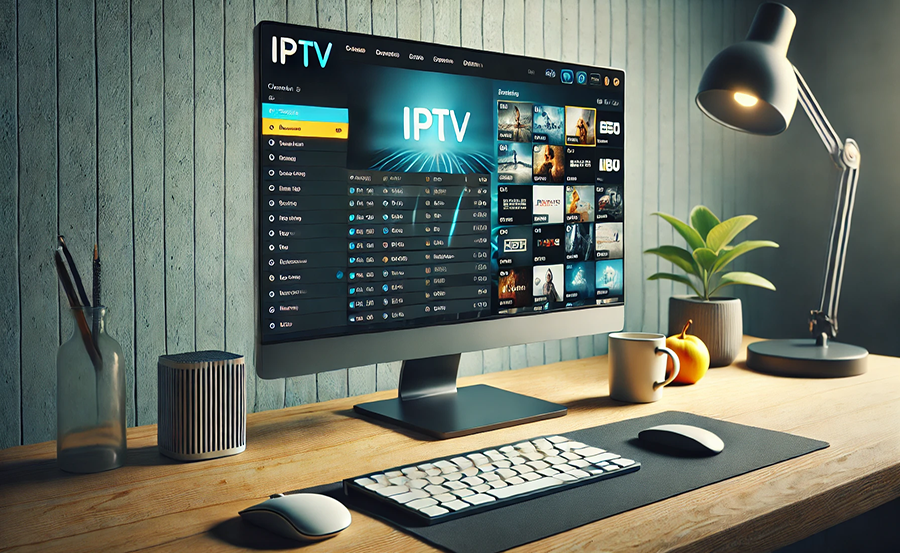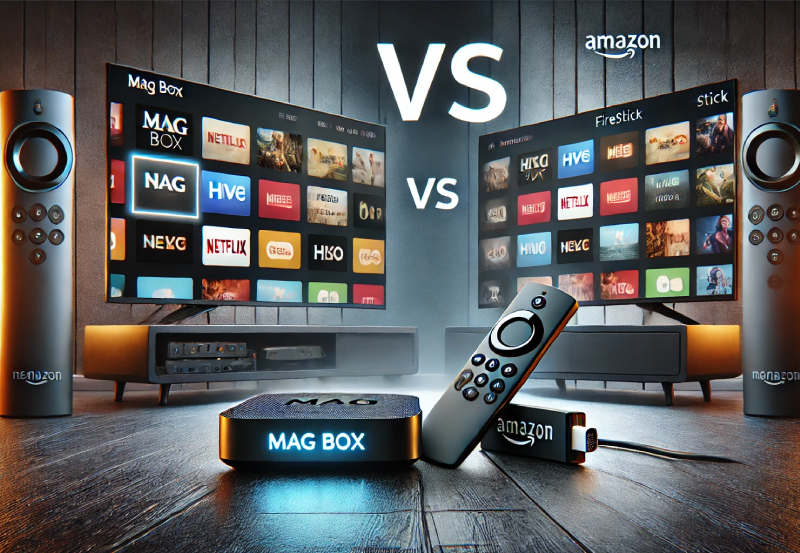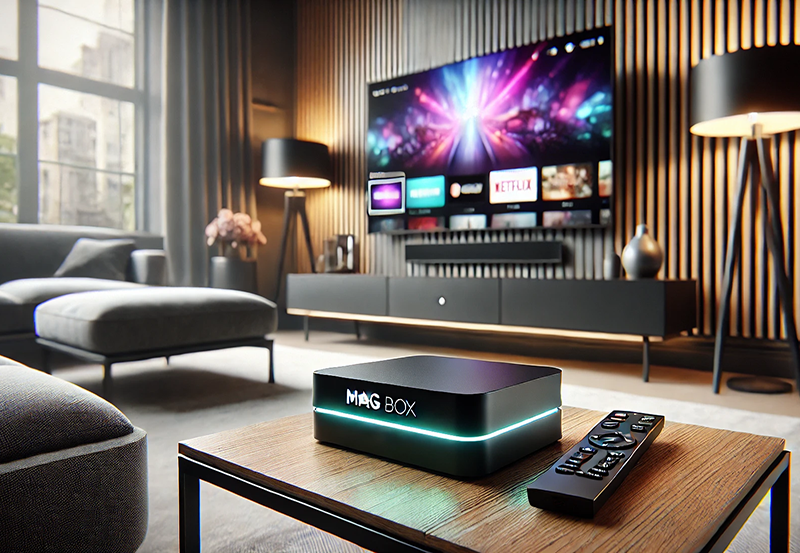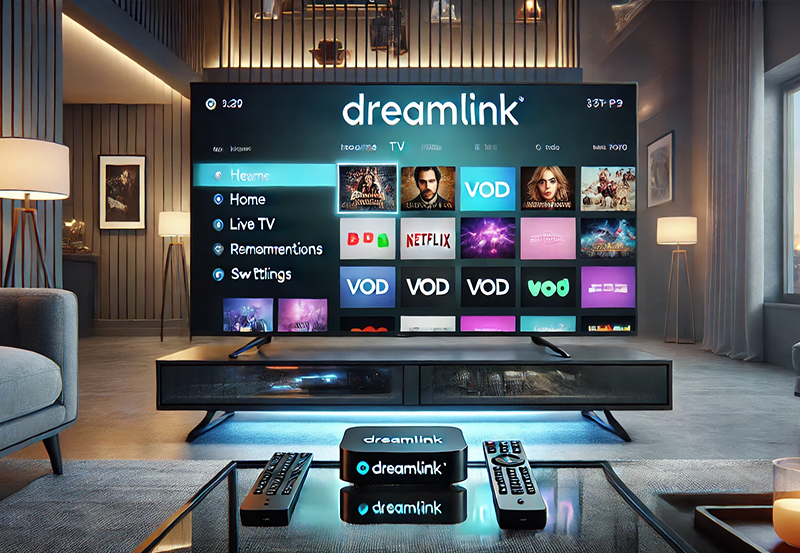In today’s digital age, the way we consume media is rapidly evolving. One of the most convenient methods that has emerged is IPTV, short for Internet Protocol Television. Whether you’re eyeing the best IPTV channels for a selection that suits your viewing preferences, or searching for an affordable IPTV solution that doesn’t break the bank, discovering superior IPTV viewing can significantly enhance your television experience. This guide is here to walk you through the process of casting IPTV from your Windows computer to your TV, ensuring you make the most of your digital entertainment setup.
Understanding IPTV and Its Advantages
What Makes IPTV Different?
Unlike traditional cable or satellite TV providers, IPTV transmits television content over IP networks. This digital format allows for higher quality broadcasts and more interactive features. Instead of being bound by broadcast schedules, IPTV provides a more flexible viewing experience, which is a huge draw for today’s tech-savvy audience.
The broadcast technology means viewers can choose what to watch at their convenience. With an extensive library at your disposal, you’re never stuck flipping through channels aimlessly. It also means you can access content on various devices, creating a seamless media environment across platforms.
Smart Advice:
Secure your entertainment for a full year with a 1 Year IPTV Subscription, offering uninterrupted access to live TV.
The Benefits of IPTV
Whether you’re in the market for affordable IPTV or simply searching for a greater variety, the advantages are clear. IPTV services offer a broader range of channels at a lower cost compared to traditional cable packages. With options to customize your channel lineup, users can tailor their viewing experience according to their preferences, ensuring maximum satisfaction.
Access to on-demand content is yet another plus. You can pause, rewind, or fast-forward live TV, giving you control that traditional viewing does not offer. This feature alone is highly advantageous for users with a dynamic schedule who demand flexibility.
Preparing to Cast IPTV from Windows
Software Requirements
To successfully cast IPTV from your Windows PC to your TV, you’ll need a few pieces of software and hardware. First and foremost, ensure that you have IPTV streaming software installed. Many options are available, so choosing one that meets your needs in terms of user interface and functionality is crucial.
Additionally, you’ll require software to cast your PC’s screen to your TV. Fortunately, Windows comes with built-in capabilities to connect wirelessly to supported displays, but third-party applications can also enhance this experience depending on the TV model you own.
Checking Your Network and Devices
Before you begin, it’s important to confirm that your TV and PC are on the same Wi-Fi network. A strong and stable connection is essential for smooth streaming. If your Wi-Fi is prone to drops or reduces bandwidth, consider connecting one of your devices directly to your router using an Ethernet cable.
Compatibility between devices is another factor to consider. Ensure that your TV supports screen mirroring. Modern smart TVs typically come with this feature, but if yours is an older model, you might need an external device like a Chromecast or a Roku stick.
Steps to Cast IPTV from Windows to Your TV
Using Built-in Windows Features
Windows offers some built-in solutions for casting your screen. Here is a concise step-by-step process:
- First, open the settings by pressing the Windows key and ‘I’ simultaneously.
- Navigate to “Devices” and select “Connected Devices”.
- Click on “Add a device” to locate your TV. Your TV should appear in the list of available devices if both are on the same network.
- Select your TV. Windows will establish a connection allowing you to cast your entire desktop or application windows directly to your TV.
This method is straightforward and doesn’t require additional software if both your PC and TV have compatible features.
Using Third-Party Applications
If built-in features are insufficient or incompatible with your TV, consider leveraging third-party applications. Popular choices include applications like VLC Media Player, Plex, or specific casting apps designed for a particular TV brand.
For example, using VLC Media Player, you can follow these steps:
- Install and open VLC on your Windows PC.
- Go to “Media” > “Stream” and select your IPTV stream.
- Follow the steps to set up and initiate a stream directed to your TV.
These tools often offer added flexibility and settings not available through native options.
Exploring Additional Features and Settings
Optimizing Picture and Sound Quality
Optimizing your IPTV stream for the best picture and sound quality is essential for an immersive experience. Begin by adjusting your TV’s picture settings. Most TVs come with preset modes like “Movie,” “Sports,” or “Game” that can be toggled according to the content you are watching.
Moreover, delve into the advanced settings to fine-tune brightness, contrast, and color balance. Ensuring your audio setup is correctly calibrated will also enhance your experience, especially if you are routing sound through a home theater or soundbar.
Customizing Your Viewing Experience
With IPTV, customization goes beyond simple channel selection. Users can often access features such as parental controls or set up alerts for their favorite shows. Look into your IPTV provider’s settings to discover what additional features can improve your TV time.
Customized playlists or favorite lists make it easier to jump to preferred content without constant searching. Explore these features to streamline your viewing process and enhance your IPTV enjoyment.
Troubleshooting Common Issues
Connectivity Problems
Connectivity issues are a common hurdle in setting up IPTV casting. If you find your devices losing connection or not pairing, start by ensuring both the TV and PC are firmly connected to the same network. Double-check IP address configurations if necessary.
Reset your router or restart your devices to resolve minor hiccups. Firmware updates for both your TV and PC can also address lingering connectivity challenges.
Lag and Buffering Solutions
If your streams buffer endlessly or exhibit lag, there are several solutions to consider. First, lower the video quality setting on your IPTV service. Although this might slightly affect clarity, it often prevents buffering.
Alternatively, boosting your Wi-Fi signal can improve laggy streams. Consider placing your router in a more centralized location in your home or investing in a Wi-Fi extender.
Getting the Most Out of Your IPTV Experience
Discovering Superior IPTV Viewing
Finding the best IPTV channels tailored to your interests and lifestyle is key to maximizing your IPTV service. Take the time to explore different providers and pick those offering a mix of high-quality channels and on-demand content.
Affordability doesn’t have to come at the cost of quality. There are plenty of affordable IPTV services on the market that offer excellent programming at competitive prices. It’s all about finding that balance that suits your needs without overspending on unnecessary bundles.
Engaging with the IPTV Community
Engaging with online communities can be invaluable in discovering new content and troubleshooting problems. Platforms such as Reddit and specialized IPTV forums provide tips, reviews, and updates that can improve your IPTV experience.
Joining these discussions not only keeps you informed of the latest trends but also connects you with fellow IPTV enthusiasts, making the entire process more enjoyable and accessible.
FAQ

What equipment do I need to cast IPTV from Windows to my TV?
Besides your Windows PC and TV, ensure they are both connected to the same Wi-Fi network. If your TV is not smart or casting-enabled, consider a streaming device like Chromecast or a compatible smart stick.
Can I cast any IPTV service to my TV?
Almost all IPTV services can be cast if you have the right software installed on your PC. Research your IPTV service’s capabilities and ensure your streaming software supports casting.
Is there a difference in video quality when casting from my PC?
Video quality can depend on several factors including network speed and the software used. Generally, wired connections for either the TV or PC offer more stable quality than wireless.
Will casting IPTV affect my internet speed?
Yes, casting IPTV can consume a significant amount of bandwidth, which might affect your internet speed for other applications. It’s wise to opt for a high-speed Internet plan if you frequently stream content.
Does the choice of IPTV provider matter?
Absolutely! Different providers offer varying channels, quality, and reliability. Comprehensive research will ensure you find a provider that marries price with performance to meet your expectations.
IPTV Smarters and Its Impact on Modern Entertainment





